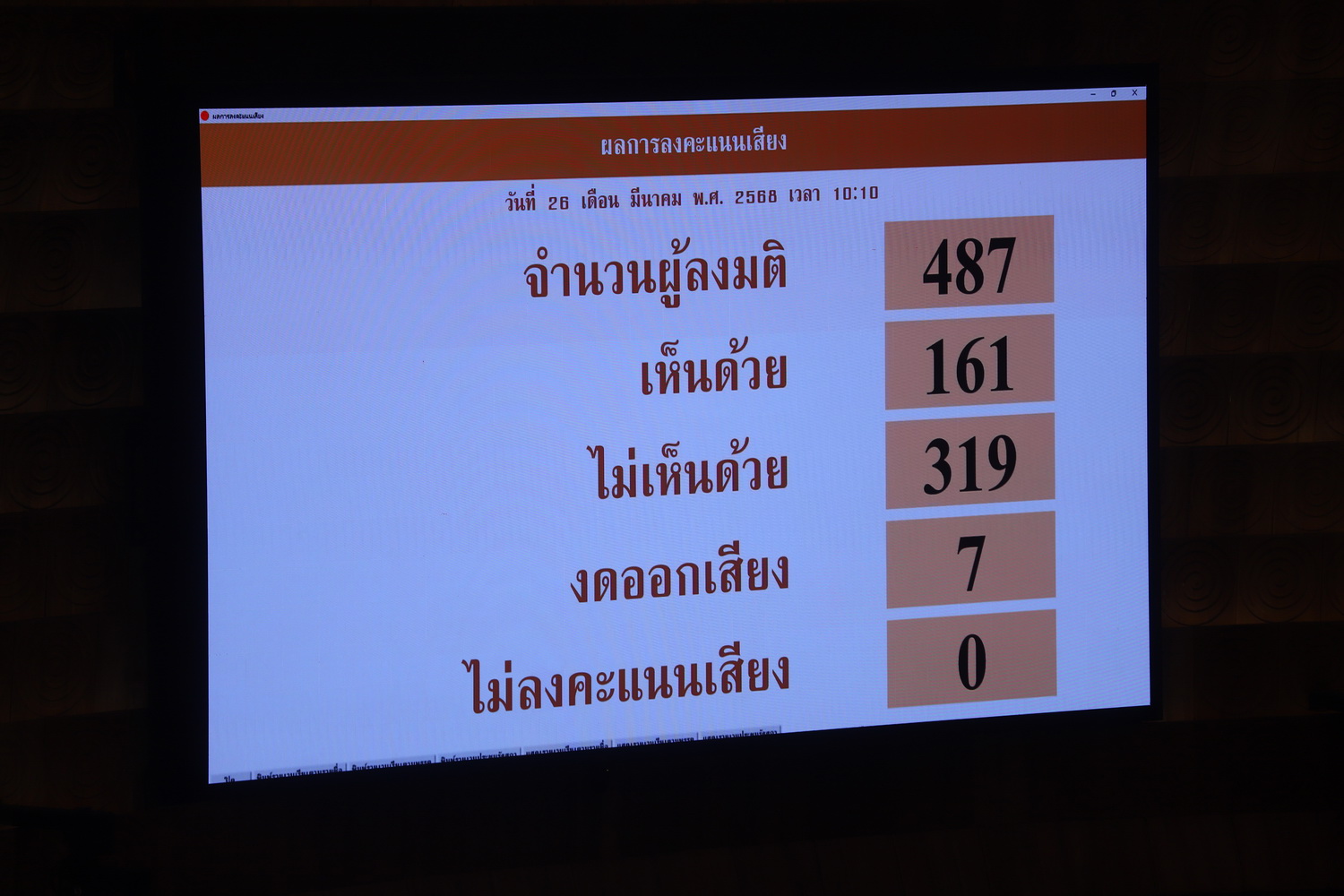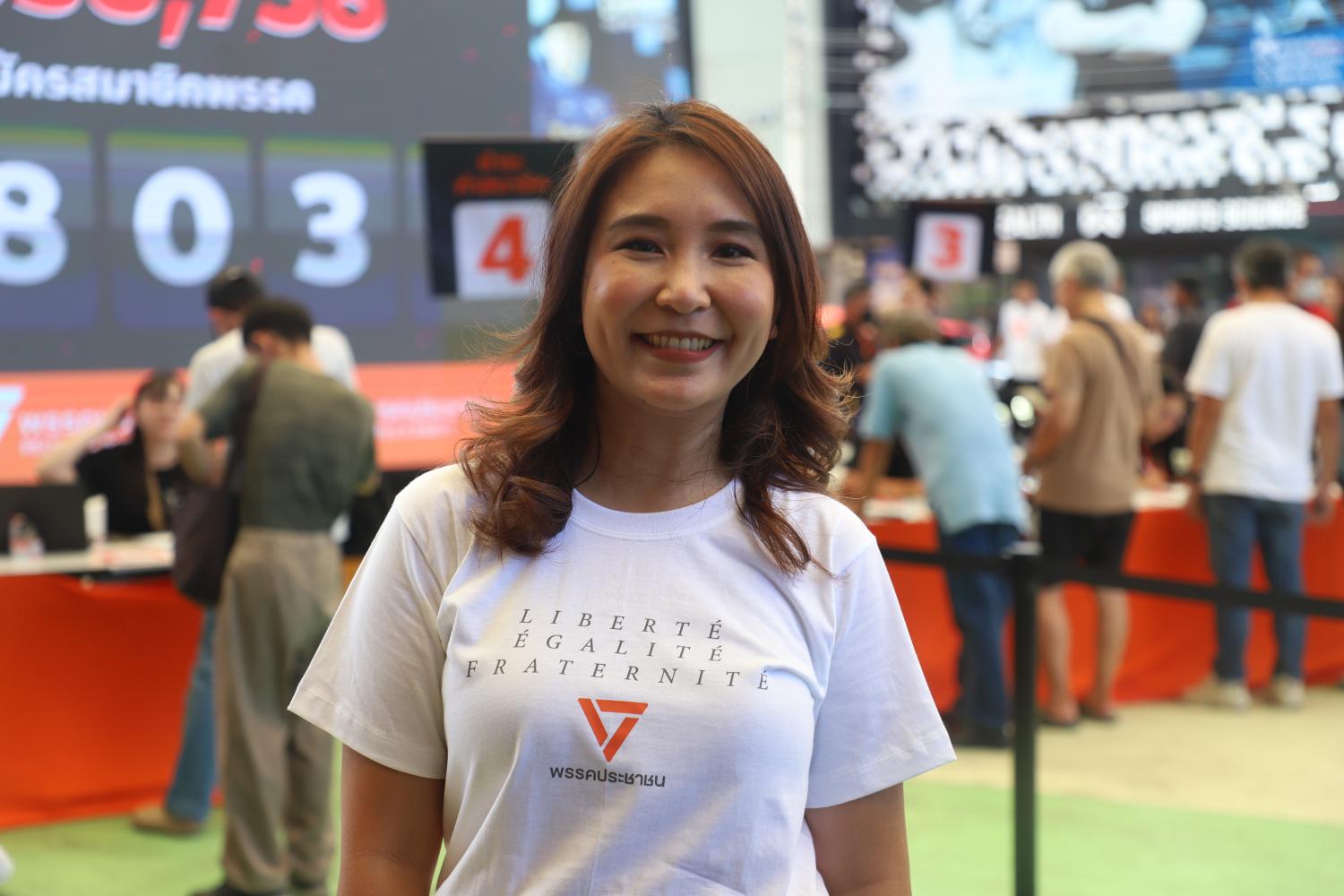
The opposition has had a field day criticising the government's third-phase money giveaway, although this is to be paid via a digital platform for the first, in the name of economic invigoration.
The 10,000-baht giveaway targets 2.7 million young people aged 16 to 20, who are more tech-savvy, as opposed to the recipients of the two previous handouts -- the underprivileged and elderly -- who received cash transferred by the government into their bank accounts.
The latest handout via the specially created digital wallet system is meant to honour the government's election pledge to digitalise finances and make people literate with cashless technology.
The Pheu Thai Party-led administration may be well-placed to claim credit for having fulfilled its poll promise. Critics, however, were not seeing the handout policy through rose-tinted glasses.
Opposition MP Sirikanya Tansakul said the latest handout is bound to run into technical glitches and fail to deliver the intended result of spurring the economy.
Ms Sirikanya has been touted by the People's Party as a contender for the finance portfolio should the party lead a future government.
In a Facebook post titled "the horror of the digital wallet scheme" last month, she ridiculed the two previous cash handouts -- which cost taxpayers 180 billion baht -- for not stimulating spending, which was the scheme's objective.
Calling those handouts "dud bullets", Ms Sirikanya insisted that despite the massive cash injection, the country's GDP has underperformed, while public consumption has fallen flat for four consecutive months.
"The graph has more or less flatlined, like a person who has lost the vital signs of life," she said, adding that the government, with its back against the wall, remains defiant in exploiting its populist agenda at any cost.
The latest digital handout, which is set to drain a further 150 billion baht from the nation's coffers, may be marred by technical shortcomings on the back of concern that the two agencies in charge of operating the digital wallet system are working out of sync with each other, according to Ms Sirikanya.
She doubted the scheme would be rolled out in the second quarter as planned, citing a lack of coordination between the Digital Government Development Agency (DGA) and the Digital Economy and Society Ministry.
The MP said the DGA is responsible for developing the digital wallet system, whereas the DES Ministry is tasked with implementing it despite lacking the necessary experience and funds.
The system functions using a payment platform engineered by the DGA, which should be the operator, given its technical capability. Instead, the agency handed over the role to the DES which, according to Ms Sirikanya, has a knowledge deficit in the system's operation.
The ministry found out only a few weeks ago it has to get the system up and running. But the system, designed to house the digital wallet, data archive and financial transactions, is nothing but an empty vessel without a proper operator to work it, she added.
Ms Sirikanya said fool-proof rules and conditions must be furnished to serve the digital wallet and plug loopholes. Many questions have gone unanswered, such as how long shops will have to wait for the system to reimburse them for sales made, she added.
Although the DGA has set up the system, the critical hurdle has to do with the DES stepping in and getting it off the ground when it has limited manpower, experience and resources to take on the task.
Ms Sirikanya insisted the government must recognise the bold fact that the budget it earmarked for the latest handout does not quite stretch as far as earlier envisaged.
She said there will only be enough to cover 15 million recipients, which is far fewer than the almost 20 million who signed up and who are expected to pass the eligibility criteria for the latest handout.
The government may need to discard certain age groups to suit the budget, according to Ms Sirikanya.
Unfazed by criticism, Finance Minister Pichai Chunhavajira said the third phase is expected to be rolled out in the second quarter of this year.
He said the digital wallet technology allows for the tracking of participants' spending and the use of the information to formulate future policies.
The first two phases covered welfare cardholders, people with disabilities and people aged 60 and above, with payments made via PromptPay accounts.
Mr Pichai said the programme was designed to lower household debt amounting to 89% of GDP.
Economic growth would be ramped up beyond 3% by means of expediting public investment, speeding up projects under the Board of Investment (BoI), pushing up export growth to 4%, and extending the length of stay for foreign visitors.
Deputy Finance Minister Paopoom Rojanasakul also defended the digital wallet programme, saying the reason it was being implemented in phases was not because of budget constraints. Rather, economic conditions make it necessary to intensify economic activities.
He said the 150 billion baht fund would be enough to finance the third-phase handout to be offered when the economy is predicted to dip and thus need a stimulus to push it along.
He noted that the amount of money injected into the system is planned accordingly, and the 16-20 age group is more technologically adept to tap into the digital financial system.
The deputy finance minister stopped short of saying if more handouts are in the pipeline.
Deputy Finance Minister Julapun Amornvivat said the 150 billion baht allocated for the digital wallet scheme must be spent in the 2025 fiscal year; otherwise, the fund will be withdrawn. But if part of the budget is used, what's left of it can be carried over to the next fiscal year.
Some damage has been done
Even though Prime Minister Paetongtarn Shinawatra breezed through the no-confidence vote after a two-day debate, it does not mean she can turn things around for the ruling Pheu Thai Party in the time she has left before the next polls.
The House of Representatives voted in her favour by 319 to 162 with seven abstentions on Wednesday morning, showing strong unity among coalition partners.
According to observers, the two-day session saw the main opposition People's Party (PP) launch a scathing attack on the premier. And with the allegations laid, her party's chances of securing a decisive victory in the next election appear increasingly distant.
The damaging claims were raised by PP deputy leader Wiroj Lakkhanaadisorn and PP list-MP Rangsiman Rome, who zeroed in on Ms Paetongtarn's family businesses and her father, former PM Thaksin Shinawatra.
Mr Wiroj accused the prime minister and her family of avoiding paying more than two billion baht in taxes through questionable share transfers.
He alleged that the use of promissory notes, without any mention of due dates or interest rates to be charged, was intended to disguise the transactions as purchases when, in reality, they were intended as gifts and thus subject to gift tax.
Allegations of tax avoidance and dubious share transfers have haunted the Shinawatra family for years, making Mr Wiroj's latest claims all the more damaging, according to observers.
After becoming prime minister a few decades ago, Thaksin was accused of deliberately filing a false asset declaration, with the case eventually sent to the Constitutional Court for review. The court found in Thaksin's favour in a highly controversial ruling.
However, in another similar case, the Supreme Court found against him and ordered a seizure of assets worth 46 billion baht.
Mr Rangsiman, meanwhile, underscored public scepticism over Thaksin's extended stay at the Police General Hospital (PGH).
During the censure debate, the MP pointed to Thaksin appearing to be in good health both shortly before and soon after his hospital detention, despite claims by the government that he was seriously ill during his entire hospital stay.
According to the MP, just two days before Thaksin's return to Thailand from self-exile on Aug 22, 2023, Ms Paetongtarn informed reporters her father was healthy and had a medical checkup twice a year.
Thaksin was seen smiling and waving to supporters after arriving at Don Mueang airport, with no signs he was suffering from a serious illness.
On the day of his return, the Supreme Court sentenced him to eight years in prison for multiple offences during his time as premier. The sentence was then reduced to one year by royal clemency.
However, on his first night, the Department of Corrections (DoC) sent Thaksin to the PGH, citing serious health issues that drew widespread scepticism. His prolonged detention at the hospital is widely believed to have been a political manoeuvre to avoid prison time.
Stithorn Thananithichot, director of the Office of Innovation for Democracy at King Prajadhipok's Institute, said that while the opposition may not have delivered a fatal blow, it has opened political wounds that could work against Pheu Thai in the next election two years from now.
He said the prime minister's response to the tax allegations -- that she has paid more tax than opposition MPs -- will be used to portray her as not the kind of leader the country needs.
"This will be repeatedly used to prevent the prime minister from shoring up the party's popularity ratings. The damage has been done to her image," he said.
As a result, Ms Paetongtarn will be unlikely to expand the party's support base to include younger voters and will only retain the loyalty of Pheu Thai's current supporters, he said.
Moreover, the controversial share transfer raised during the no-confidence debate is expected to present grounds for seeking a formal, criminal probe, a move that could ultimately lead to her removal from office.
Mr Stithorn said the debate had no impact on the casino-entertainment complex project despite the policy being highly controversial and not being part of Pheu Thai's election pledges.
However, this may be because the project has yet to move forward, as the necessary legislation has not been passed. As long as it remains on paper, the opposition has little ammunition with which to launch a full-scale attack on the government, he noted.
As for the coalition parties, Pheu Thai is expected to continue working with them despite reservations from the conservative camp, primarily because there are no better alternatives, said Mr Stithorn.



